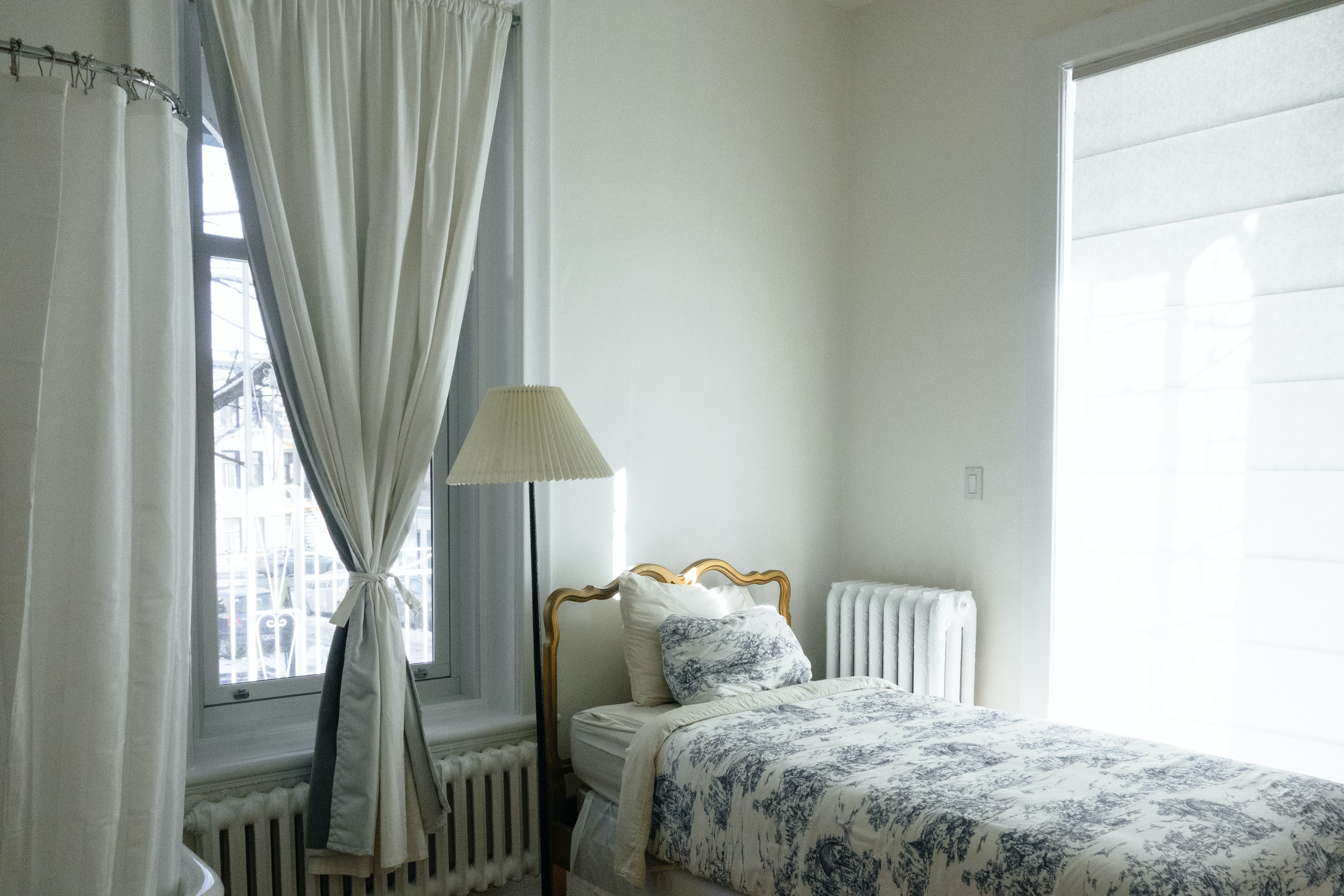A live-in carer is an amazing option for those with daily needs that extend beyond a visiting carer, and can offer companionship as well as active care and support. A live-in carer’s role can be dependent on the client’s individual needs, but there are many aspects of daily life that they are able to help with. So what is a live-in carer?
A live-in carer is a carer that will provide constant care, support, and companionship to their client by living with them 24/7 and caring for their individual requirements. Their tasks can include:
- Cooking
- Cleaning
- Personal care
- Shopping
- Household chores
- Moving around outside the home
- Healthcare support
Read on to find out more about what live-in carers do, who is eligible, and frequently asked questions about live-in care.

What Do Live-in Carers Do?
Live-in carers provide care and support in the client’s own home by living with them and caring for their needs. This can include a wide range of duties such as:
- Cooking
- Cleaning
- Assisting with personal care
- Dressing
- Shaving
- Shopping
- Ironing
- Light housework
- Attending appointments
- Getting around outside of home
- Healthcare or medication related tasks.
Not only do live-in carers assist with all aspects of everyday life, they’re also a friend that provides emotional support and companionship. Living alone, especially if you’re unable to leave the house alone, can be very lonely and feel isolated. A live-in carer will not only provide someone to talk to, but also someone to engage in hobbies and activities and assist where needed.
If you’re unsure if live-in care is the right choice for you, read our guide on the difference between live-in care and hourly care.
Do Live-in Carers Work at Night?
One of the biggest benefits of a live-in carer is their ability to respond to emergencies and issues at all times of the day and night. While they generally work 8-10 hours a day, there may also be occasions when they’ll need to assist you during the night.
Carers can be woken up twice a night, for up to 5 minutes per wake, to assist with tasks such as toileting or getting a drink. Where possible, it’s better to avoid doing this so that your carer can have a full night’s sleep, however they’re always happy to help when required.

Do You Have to Feed a Live in Carer?
The client doesn’t have an obligation to feed a live-in carer, however they will still need to eat! Many of our clients like to eat together with their carer and share their food (and company!). In this case, it’s up to you if you’d like to pay for their food or split the bill together.
Alternatively, if it’s preferable to eat alone, the carer can still do the shopping for both of your meals if required. In this case the carer will bring their own food, and still help with the shopping, cooking, and cleaning for your meals – they’ll just organise their own meals separately too.
Who Pays for a Live-in Carer’s Food?
No matter how the client prefers to eat, they don’t have to pay for their carer’s food bill if they choose not to. Many of our clients like to do this anyway, but it’s not expected. If the client does choose to pay the food bills, this can be done through sharing the food that they buy or providing your carer with an allowance to cover their food costs..
What if I Have Religious Dietary Requirements?
If there are any dietary requirements, the client is able to state what they are during the care assessment process so that carers are informed. Once the assessment is complete, we create a detailed care plan with all of this information included so that the carer is aware of any requirements.
This means that if the client doesn’t want meat in the house, their carer will conform to this and never bring any of the restricted items into the home. All of this is personal choice, so whatever those requirements, the carer will follow them.
What if My Carer Has Dietary Requirements?
If the carer has dietary requirements that don’t match the client’s, it is not expected that the client will pay for this outside of the normal food payments. To ensure that both parties are happy with the arrangement, we’ll discuss this as part of the care assessment and ensure that both the client and carer are happy to go ahead with the living arrangements.

Do Live-in Carers Need Their Own Bedroom?
Because live-in care can be a demanding role, both physically and mentally, it’s important that a carer has a private space to wind down at the end of the day or during their breaks.
They will need to be provided a private bedroom containing a bed. While the private room doesn’t need to be a 5 star hotel, the more comfortable the carer is, the happier both parties will be!
While not required, many of our clients like to provide WiFi, a TV, and a place to store items such as a chest of drawers or wardrobe.
For more information on having a live-in carer stay with you, read our blog “do live-in carers stay overnight?”
Do Live-in Carers Need Their Own Bathroom?
While access to a bathroom is essential for a live-in carer, it doesn’t necessarily have to be a private one. Carers are happy to share your bathroom, however some clients will prefer to provide them with their own. This can be particularly helpful if the client has particular conditions that might benefit from it, such as advanced dementia or other conditions where it’s better to keep the surroundings consistent.
What Needs to Be Provided for a Live-in Carer?
There are some things that a carer will require in order to be able to effectively carry out their duties and live comfortably at the same time. Here is a list of the things that will need to be in place before a carer can move in:
- Bathroom access
- A private bedroom
- Cooking/kitchen facilities
- A safe and secure home
- Medical details
- Housekeeping details & plan
- Food (or food allowance)
How Many Hours a Day Should a Live-in Carer Work?
A live-in carer will generally work between 8 and 10 hours per day, however they are also expected to be available for emergencies overnight too. While this is a part of the job role, a carer should never be interrupted outside of their work hours unless it’s for absolute emergencies, as they have a right to privacy and time away from work.
The 8-10 hours that a carer works doesn’t necessarily have to be consecutive hours. If help is needed getting in and out of bed but need less help during the day a carer can amend their schedule to suit the client’s needs.

Do Live-in Carers Work 7 Days a Week?
Yes, live-in carers will work 7 days a week and generally work in 1 week blocks on a one week on, one week off or two weeks on, two weeks off basis.
Do Live-in Carers Have to Pay Rent?
Live-in carers don’t have to pay any rent as their accommodation is included as part of their employment arrangement. While they get time to themselves at the end of their work day, they’re still available for emergencies 24/7, so their accommodation is part of their work!
Is Live-in Care Funded by the NHS or Council?
Live in care can either be funded or part funded by the local authority, assuming that the client’s care requirements match those of the local authority. Because these are often strict, many of our clients choose to fund their own live-in care despite not meeting their local authorities requirements.
Who Is Eligible for Live-in Care?
Finding funding from your local authority can have a complex process that has strict requirements for eligibility. However, if live-in care is privately funded, anyone is eligible if they decide that it’s the right option for them! This can be for a wide range of reasons, from simply struggling to complete household chores to advanced dementia. No matter what the reason, if the client and their family decide that live-in care is the best option, they’ll be able to find a carer that suits their needs.
As long as they’re over the age of 18 and can provide the necessary living spaces for the carer, they’re eligible for live-in care. For example, we have many clients that don’t have serious medical conditions but are elderly and like the security of someone living with them.
Home Care at Rivendell Care
At Rivendell Care, we provide a wide range of home care services such as live-in care and 24 hour care. Our care plans are tailored to your exact needs with input from you, your friends, and your family, so no matter what your requirements, we’ll be able to care for you.
We care for all kinds of conditions, including dementia, injuries, parkinson’s disease, and more.
Get in touch with us to book a detailed home care assessment to find out how our carers can change the life of you or your loved one.

